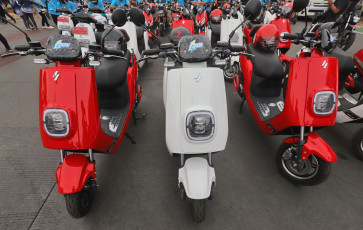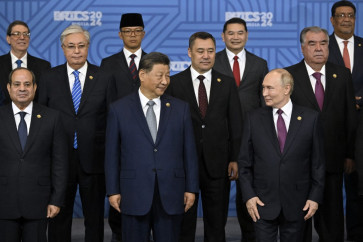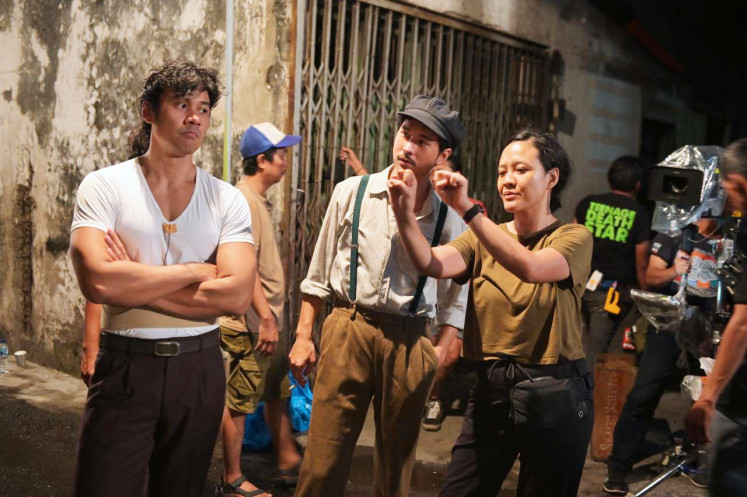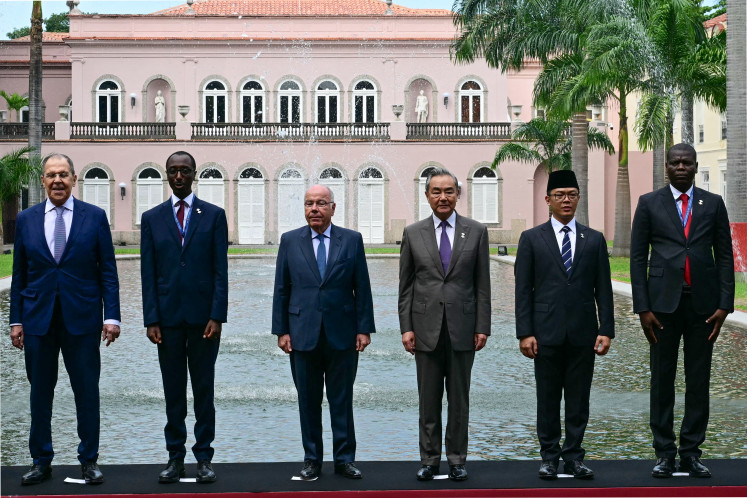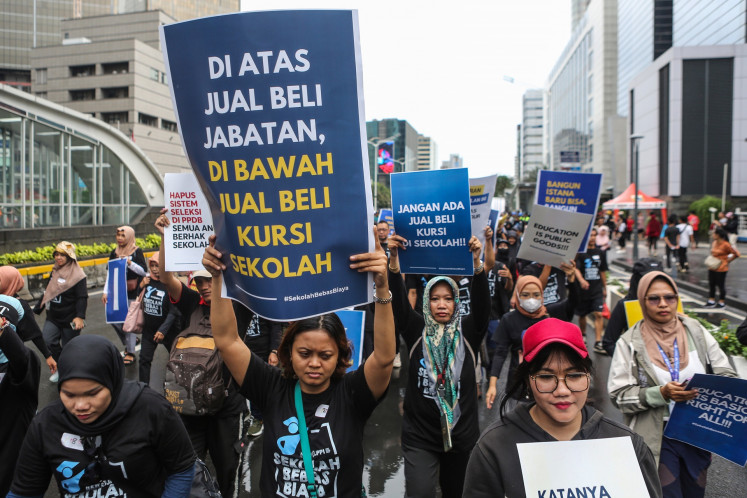Electronic music and poetry collide in ‘Melihat Puisi’
Melihat Puisi (Looking at the Poetry), an event held on Saturday, Feb. 24, at Galeri Indonesia Kaya in Central Jakarta, aimed to combine poetry and Electronic Dance Music (EDM).
Change text size
Gift Premium Articles
to Anyone
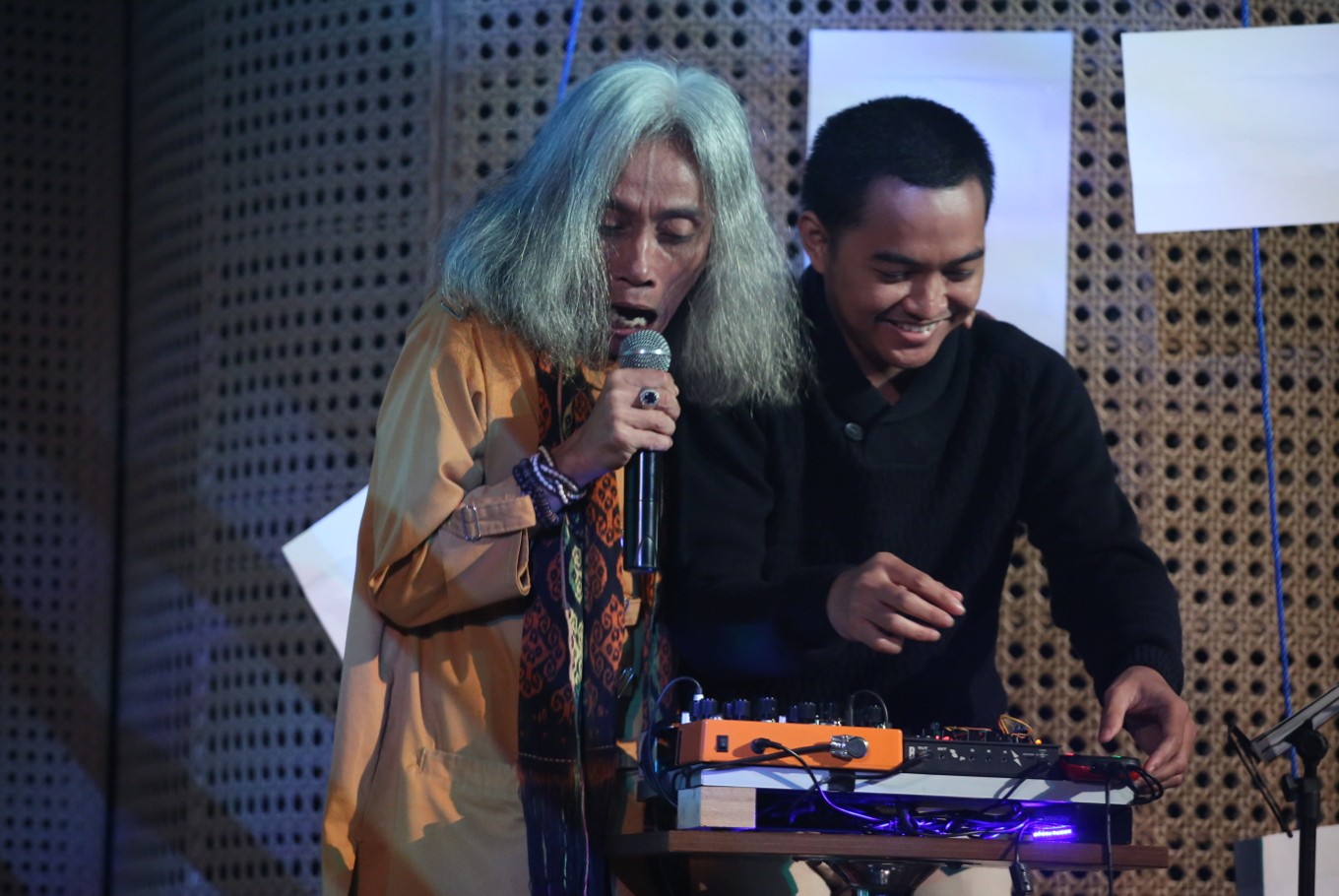 Godi Suwarna (left) and Tesla Manaf at the 'Menulis Puisi' event on Saturday, Feb. 24, at Galeri Indonesia Kaya in Central Jakarta. (Galeri Indonesia Kaya/File)
Godi Suwarna (left) and Tesla Manaf at the 'Menulis Puisi' event on Saturday, Feb. 24, at Galeri Indonesia Kaya in Central Jakarta. (Galeri Indonesia Kaya/File)
I
t was surreal; four poets stepped onto the stage to read WS Rendra’s Sajak Tangan and suddenly Electronic Dance Music (EDM) was heard as if it were trying to go along with the reading.
This was one of the scenes from the Melihat Puisi (Looking at the Poetry) event held on Saturday, Feb. 24, at Galeri Indonesia Kaya in Central Jakarta. Previously known as Sastra: Melihat Masa Lalu, Melihat Masa Kini (Literature: Looking back to the Past, Looking at the Present), the event brought together poets from different backgrounds and generations, namely Godi Suwarna, Hanna Francisca, Ni Made Purnama Sari, Faisal Syahreza, H.S. Dewandani and Joind Bayuwinanda, while musician Tesla Manaf arranged the music.
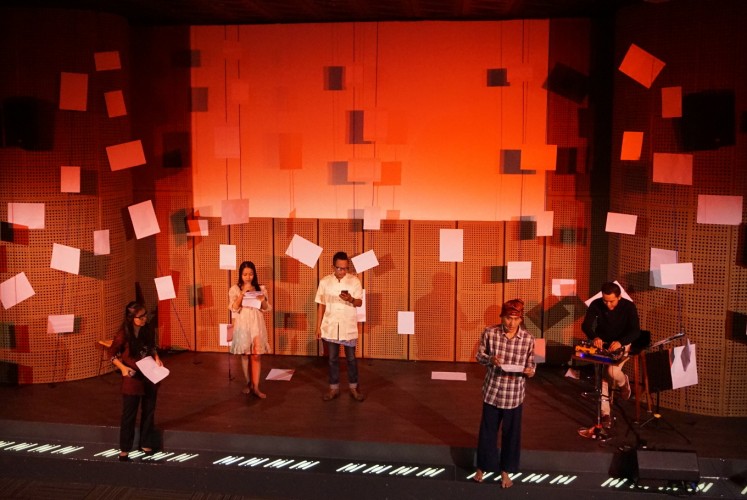
The performance’s director, Heliana Sinaga, said she chose poems that could be combined with EDM. “Maybe other poets in other countries have used the music [in their performances], but for many poets in Indonesia, they rarely collaborate with music,” Heliana told The Jakarta Post, adding that it was her debut as a director. “So it’s not music that accompanies the poetry, but how they collaborate with each other.”
Heliana continued that, on the first day of rehearsal prior the show, the poets and musicians talked to each other about how to combine their aspirations.
Read also: Poetry: Of people and the rain
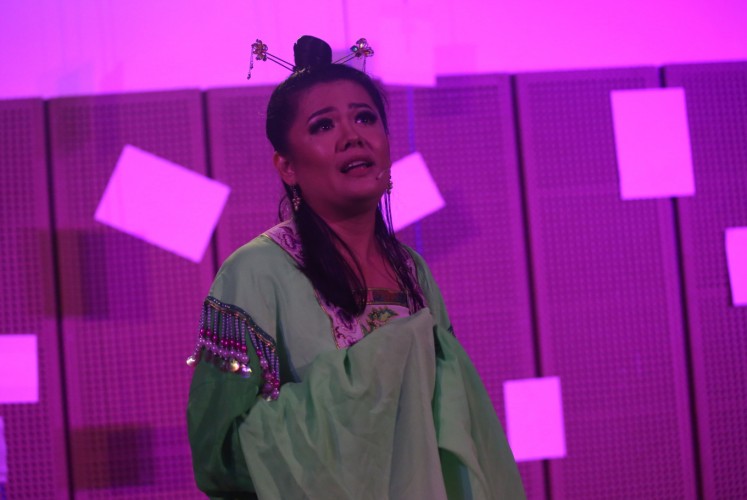
After ending their poetry reading, each poet told a story about the poems and their backgrounds. Godi Suwarna, a celebrated poet who uses the Sundanese language, for instance, opened the event with Studio Armageddon. Back in the 1970s, Godi travelled from his village to Bandung and experienced culture shock after seeing people ajojing (dancing) at Studio East discotheque. “[It] was weird, just like an apocalypse,” Godi said.
Meanwhile, Ni Made Purnama Sari performed Doa Puisi (Pray Poetry). She then recalled when her first poem was published 11 years ago in a local newspaper in Bali. “At that time I felt proud that my poetry was seen in a newspaper, which only came out 52 times a year,” Purnama said. She then shared her thoughts about the current era in which there were many media platforms for people to express themselves through poetry. “But I believe that good poetry – it doesn’t show up instantly, but it needs solemnity and tenacity to observe what is happening in our lives.”
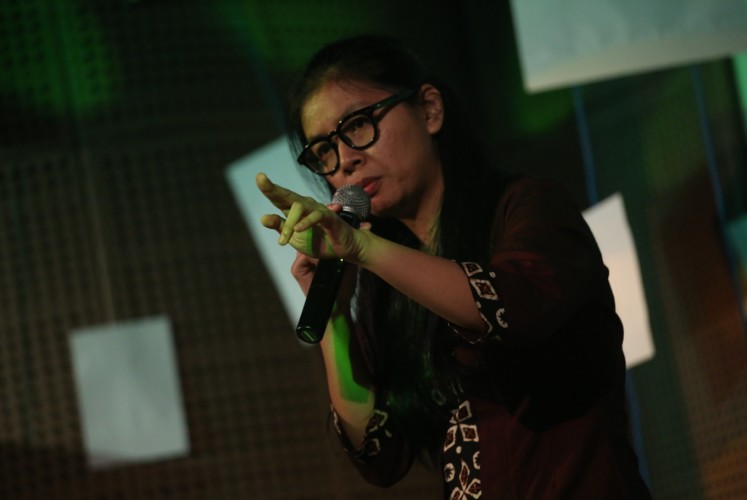
In addition, Heliana also agreed with Purnama. “Technology, which develops really fast, can get people fame easily, as they can publish their works everywhere,” she said. “But the downside is, younger poets and their work become instant – they will be popular and then vanish instantly. Purnama said that writing was a continuous process, not something that stopped. "There must be consistency although the era has changed,” Purnama said. (mut)


